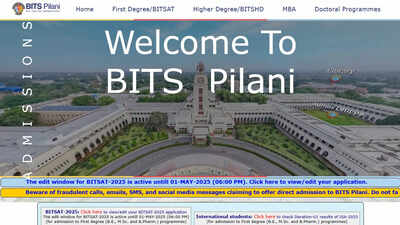A university under siege: Harvard faces the gravest threat to its identity in a generation

Once the undisputed symbol of intellectual excellence and academic liberty, Harvard University now finds itself at the epicenter of a political confrontation with implications far beyond its ivy-covered walls. The institution, long revered for cultivating independent thought and global leadership, is grappling with sweeping federal retaliation that threatens its core identity. With billions in funding withheld, its nonprofit status questioned, and international students under targeted scrutiny, Harvard has become a litmus test for the survival of academic freedom in an era increasingly defined by ideological litmus tests and political coercion.
The Trump administration’s campaign against the university has plunged students, faculty, and staff into a climate of pervasive anxiety. For international scholars in particular, Harvard has transformed from a sanctuary of learning into a place of vulnerability, where participating in protests or even posting on social media carries the risk of deportation or detention. Encrypted communications, campus-wide mutual aid networks, and cancelled academic opportunities now characterise daily life.
What is unfolding is not simply an attack on one university—it is a broader attempt to redefine the boundaries of dissent, inquiry, and intellectual independence across the landscape of American higher education.
Fear in the halls of power
Behind Harvard’s ivy-covered façade, the atmosphere is grim. Faculty encrypt their communications, town halls warn of impending layoffs, and international students weigh deportation risks over daily choices. The Trump administration’s April directive to supply names and disciplinary records of protesting foreign students has cast a chilling shadow. Many now avoid protests altogether, fearful that their immigration status could be weaponised.
A community living in shadows
International students, who make up nearly a quarter of Harvard’s population, have become the most visible collateral in this political crossfire. From Pakistan to Sweden, students describe life under constant anxiety. Some keep passports on hand in case of sudden ICE intervention. Others have gone silent online, withdrawn from classes, or cancelled academic trips. For many, their dream of studying at Harvard has turned into a calculated game of survival.
The cost of defiance
When Harvard refused to comply with federal ideological mandates—including requiring “viewpoint diversity” subject to government approval—the administration retaliated swiftly. In addition to the funding freeze, threats to Harvard’s nonprofit status and visa sponsorship have raised alarms. Critics say the White House is using financial coercion to reengineer the values of higher education, demanding not just neutrality, but conformity.
The disappearing middle ground
Harvard’s leadership has publicly vowed to resist political overreach, with President Alan Garber calling the attack a threat to the entire US higher education system. But students on campus are divided. Some applaud the administration’s stance; others say Harvard’s response has already included quiet compromises. Firings, suspended partnerships, and paused initiatives—particularly those tied to Middle Eastern studies—have raised uncomfortable questions about whether the university is truly holding its ground.
Civil liberties versus federal strings
The demands go far beyond funding. Professors worry that admitting students based on ideology, or hiring faculty based on political litmus tests, sets a dangerous precedent. Harvard psychologist Steven Pinker captured this fear succinctly: “Do we now require anti-vaxxers in medical school? ‘Stop the Steal’ theorists in history?” The implication is clear: Government-mandated intellectual diversity could gut academic integrity altogether.
Resistance in the margins
Amid fear and fallout, a quiet resistance is taking shape. Law students are organising mutual aid networks. Activists are holding encrypted strategy sessions and sharing know-your-rights resources. Walking in groups has become routine. Community safety now depends not on institutions, but on solidarity among those most at risk.
When speaking out becomes a risk
A painful irony haunts many students: the very freedom of speech and activism that drew them to Harvard has become a potential trigger for expulsion. From skipping Iftar meals out of fear of surveillance, to writing op-eds preemptively in case of deportation, students are recalibrating their identities around caution. “It kills me inside not to join protests,” said one student. “But I can’t afford to be seen.”
A test case for higher education’s future
What happens at Harvard will reverberate across the academic world. If federal power can force ideological audits and threaten deportation as leverage, no university is safe. And as commencement looms, so does a sobering question: Can elite education survive without compromising its values—or will America’s universities become echoes of political will?
Between silence and resistance
Harvard’s legacy is on trial—not in the courts, but in its classrooms, dormitories, and lecture halls. In the balance hangs not only its reputation, but the very principles that define liberal education. The university may have once taught students to speak truth to power. Now, it must decide whether it can still afford to.





